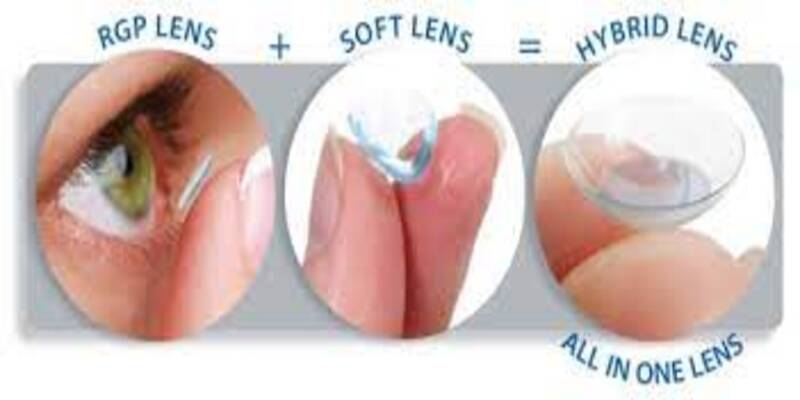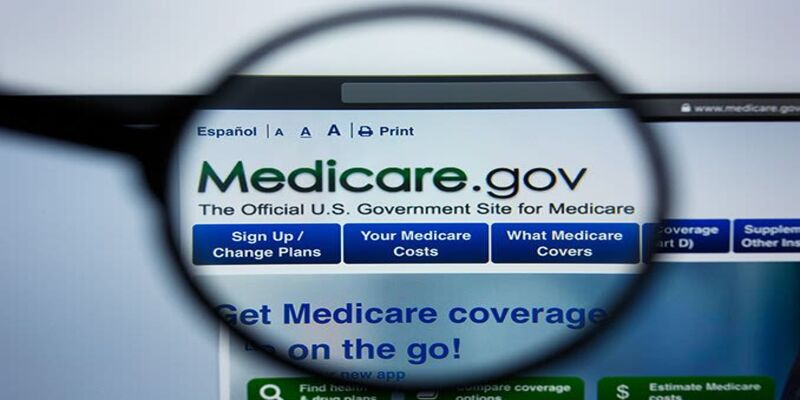Medicare is a federal health insurance programme for people 65 and older and younger people with specific disabilities or health conditions. It covers a lot of people. But Medicare doesn't cover a lot of eyeglasses and contact lenses to help people see better. Medicare usually doesn't pay for regular eye exams, eyeglasses, or contact lenses unless they are deemed medically necessary because of specific diseases or conditions. For example, if you have cataract surgery, Medicare may pay for some of the cost of glasses or contacts that will help you see better after the surgery. But if you have an individual vision insurance plan or a Medicare Advantage plan, you may have better coverage for eyeglasses and contacts as well as other vision-related costs. It's essential to look over the details of your project, so you know what is and isn't covered.
Medicare Eyeglass and Contact Lens Coverage
Medicare usually doesn't pay for regular eye exams, eyeglasses, or contact lenses unless they are deemed medically necessary because of specific diseases or conditions. But there are some situations in which Medicare may pay for eyeglasses or contacts.
Medically Necessary Eyeglasses
Medicare may cover the cost of eyeglasses if they are deemed medically necessary due to certain conditions or diseases. For example, if you have had cataract surgery, Medicare may cover the cost of eyeglasses or contact lenses needed to correct your vision after the surgery. For eyeglasses to be considered medically necessary, they must be prescribed by a doctor or other qualified healthcare professional. The prescription must also specify the type of lenses and frames that are needed to correct your vision.
Medically Necessary Contacts

Similarly, Medicare may cover the cost of contact lenses if they are deemed medically necessary due to certain conditions or diseases. For example, if you have an eye condition that prevents you from wearing eyeglasses, Medicare may cover the cost of contact lenses. For contact lenses to be considered medically necessary, they must be prescribed by a doctor or other qualified healthcare professional. The prescription must also specify the type of lenses that are needed to correct your vision.
Preventive Services
While Medicare does not cover routine vision exams, certain preventive services related to eye health are protected. These services include glaucoma tests and dilated eye exams for people at high risk of developing glaucoma. Glaucoma is an eye disease that can cause vision loss and blindness if left untreated. Medicare covers a glaucoma test once every 12 months for people at high risk of developing the disease. Those having a history of glaucoma in their family, Black Americans over the age of 50, and Hispanic Americans over the age of 65 fall into this category. High-risk individuals are eligible for an annual Medicare-funded dilated eye test. Those with diabetes, those with a history of eye illness in their family, and those with other eye-related medical conditions fall into this category.
Alternative Options for Coverage
While Medicare may not provide comprehensive coverage for eyeglasses and contacts, other options exist.
Medicare Advantage Plans

Medicare Advantage plans, or Part C, are offered by private insurance companies approved by Medicare. These plans provide all the benefits of Original Medicare (Part A and Part B) and additional benefits such as vision, dental, and hearing coverage. For many Medicare Advantage plans, we provide routine vision exams, eyeglasses, and contact lenses. However, it's essential to review the specific details of each plan to understand what is and isn't covered.
Vision Insurance
Another option for obtaining coverage for eyeglasses and contacts is to purchase a separate vision insurance policy. Private insurance companies offer these policies and provide coverage for routine vision exams, eyeglasses, and contact lenses. Vision insurance policies vary in cost and scope, so it's essential to review the details of each approach to determine if it's a good fit for your needs.
Conclusion
Medicare coverage for eyeglasses and contacts is limited to situations where they are deemed medically necessary. This includes problems such as after cataract surgery or for people with certain eye conditions that prevent them from wearing eyeglasses. However, Medicare does cover certain preventive services related to eye health, such as glaucoma tests and dilated eye exams for people at high risk of developing eye disease. While Medicare may not provide comprehensive coverage for eyeglasses and contacts, other options are available, such as Medicare Advantage plans and vision insurance policies. It's essential to review the specific details of each plan or policy to understand what is and isn't covered and determine the best option for your needs. It's essential to prioritize your eye health and work with your healthcare provider and insurance provider to determine the best action for maintaining and improving your vision.



